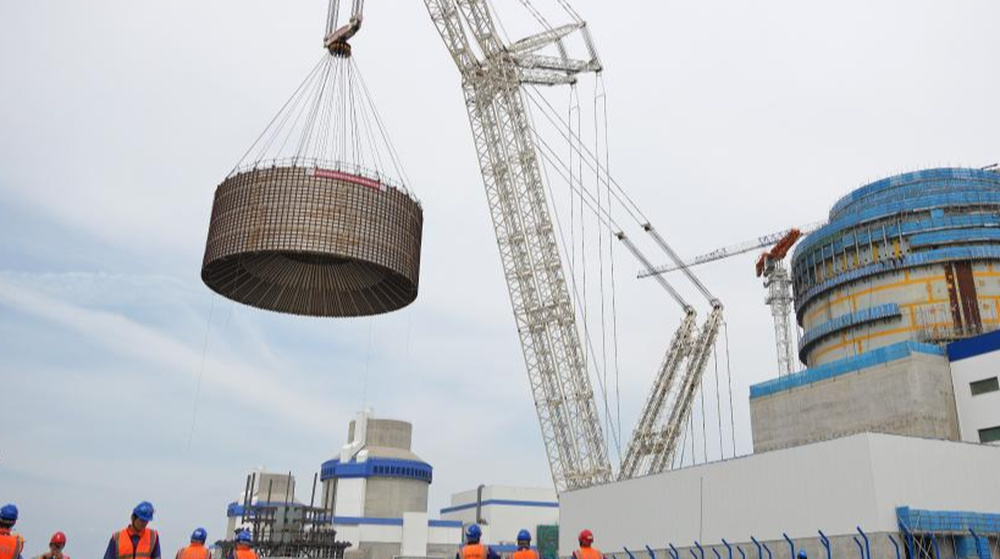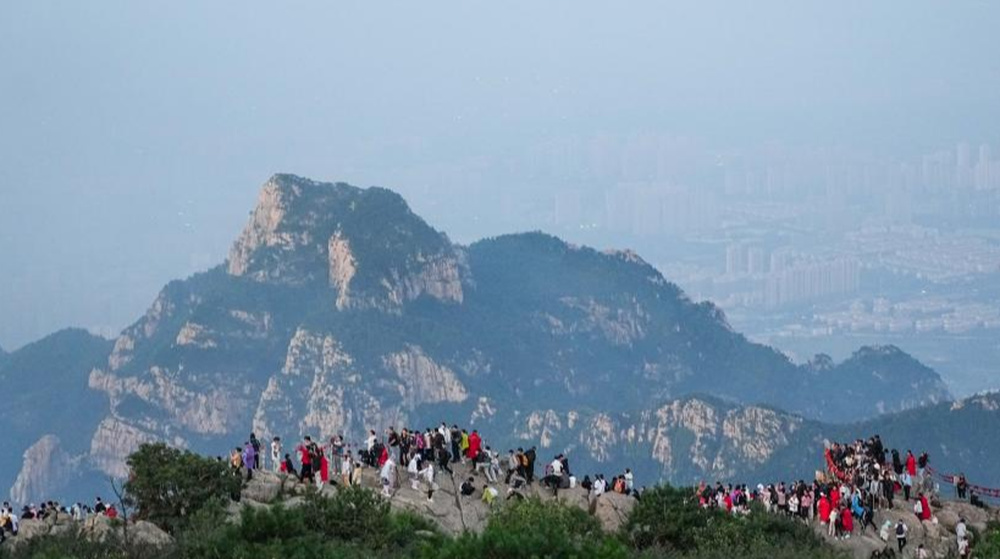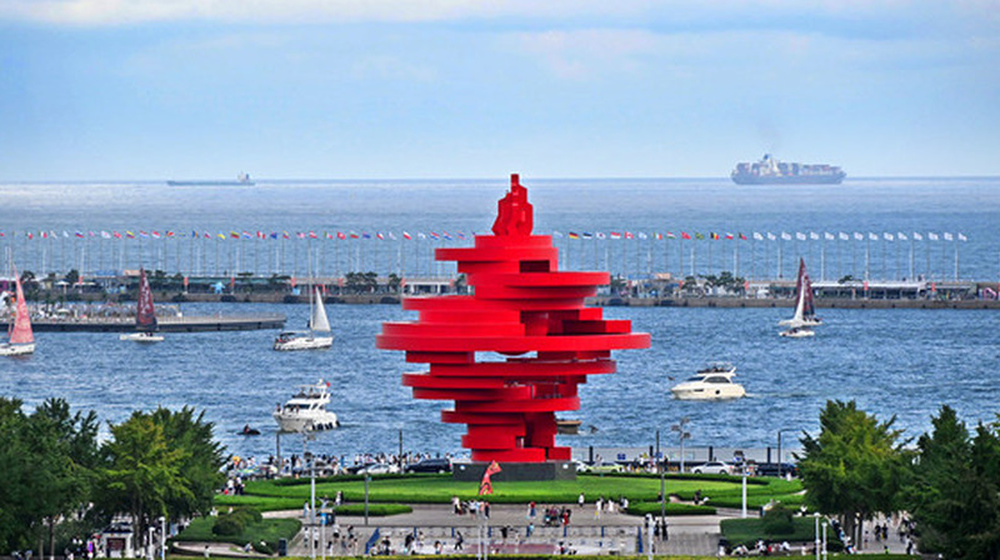"Wine is sunlight, held together by water." This line is often attributed to Galileo Galilei — who, beyond being a father of modern science, was also a man of the land. Raised in the rolling hills of Tuscany, he would have grown up familiar with vineyards stitched across the countryside, the scent of fermenting grapes in the late summer air, and the quiet rhythm of agriculture that nourishes both body and mind.

The rolling grapevines of Yantai's wineries. [Photo provided to chinadaily.com.cn]
As a girl from Italy, I grew up surrounded by wine in all its forms: bottles passed hand to hand around family tables, vines climbing sun-soaked hillsides, and the quiet pride of people like my parents, who understand the land not just as geography, but as something you work with and listen to. When I came to China to study in Beijing, I didn't expect that same language of land and patience to follow me, let alone to Yantai, a coastal city I knew little about beyond a few lines about the Eight Immortals crossing the sea.
So when I found myself in Yantai, staring at sculptures of the Eight Immortals in a hotel lobby, their stone eyes seemed to wink: "Italy taught you wine? Nice. Now let's show you how Shandong does it."

A Sculpture of the Eight Immortals in a Yantai Hotel Lobby. [Photo provided to chinadaily.com.cn]
There's something poetic, then, about encountering that same familiar rhythm halfway across the world, in Yantai. Here too, vineyards stretch across gentle slopes; here too, hands tend to vines with care and patience; here too, wine is more than just something to taste – it holds the memory of a place, the rhythm of time, and the labour of love behind it.
It was in this setting that the 2025 Global Wine Tourism Organization (GWTO) Enotourism Conference unfolded. As Asia's only International Vine and Wine City, Yantai, located in China's Shandong province, welcomed delegates and wine lovers from around the world over the course of three days. The event culminated in the landmark Yantai Declaration, which outlined a global vision for responsible enotourism.
But beyond the policy papers and proclamations, we were invited to taste the vision — quite literally. Visits to wineries like Longting Vineyard and Runaway Cow Winery offered a glimpse into the full cycle: from grape planting and fermentation to bottling and, of course, generous tastings.
At Longting, somewhere between a vineyard tour and our third glass of wine, we were ushered into an impromptu barefoot baduanjini session on the dewy grass. The instructor moved with the fluid grace of a willow branch, while the rest of us fought for survival. My spine, stiff as a broomstick, rejected the very concept of bending. Still, there was something undeniably charming about it, swaying with the breeze, feet in the grass, surrounded by vines, the birds… and just enough Cabernet to believe I was doing it really well until I rewatched the clip my friend Mel later sent me.

An impromptu barefoot baduanjin session on the dewy grass at Longting. [Photo provided to chinadaily.com.cn]
As someone drawn to stories hidden in landscapes, no moment captured this more perfectly than meeting Rita, the owner of Mystic Island Winery. She and her husband built the estate from the ground up, bringing together local farmers and international experts to create a sustainable wine region, one that supports the community while respecting the land. Listening to her, I had a brief, delusional vision of my future: me and my imaginary husband (application still pending), romantically pruning vines at sunset. Then I remembered my actual qualifications: I'm basically a botanical serial killer. My last plant lasted 48 hours — indoors, in a cozy dorm room, and still chose death over my care.
Anyway, that evening, after a DIY wine tasting session where we mixed our own blends (mine was… ambitious) and an unforgettable seafood-based dinner, Rita handed me a small gift: a cork keychain from one of her bottles. I didn't expect such a tender gesture; it was both thoughtful and meaningful.
The next day took us deeper into China's winemaking legacy. At the sprawling Changyu Industrial Park and the Changyu Wine Culture Museum, we saw history unfold in barrels and glass. Century-old fermentation tanks and interactive exhibits offered visitors a crash course in the roots and reach of Chinese viticulture.
Finally, as the train pulled away, Yantai's vineyards shrank into green brushstrokes on the horizon. Galileo, exiled from his own vines in old age, still wrote of their solace. I finally understood why.
Back in Beijing, I slipped Rita's cork keychain onto the ring of my new apartment keys. And just like that, Yantai followed me home.
Melania El Khayat contributed to this story.
编辑:曹晓旭








